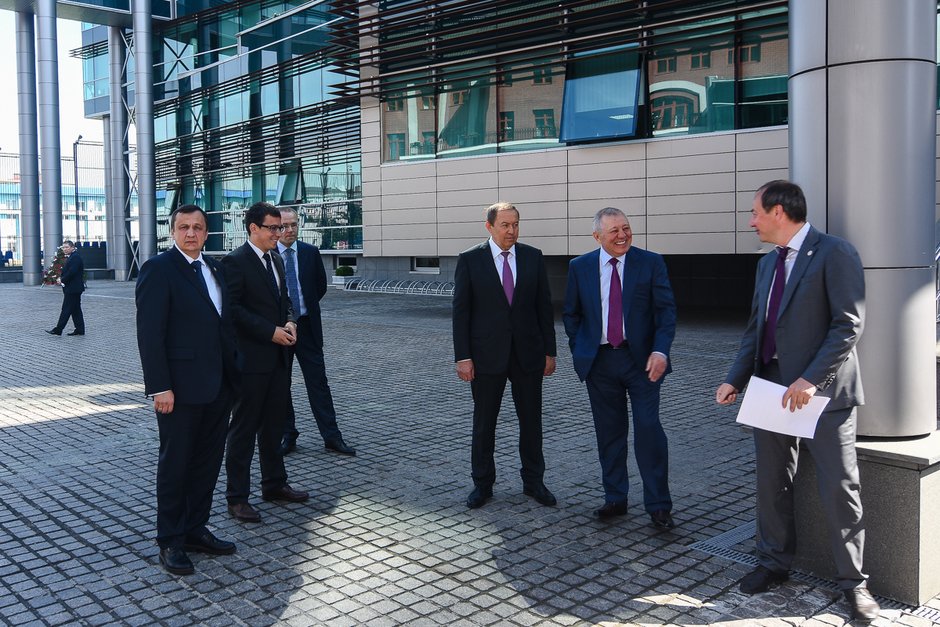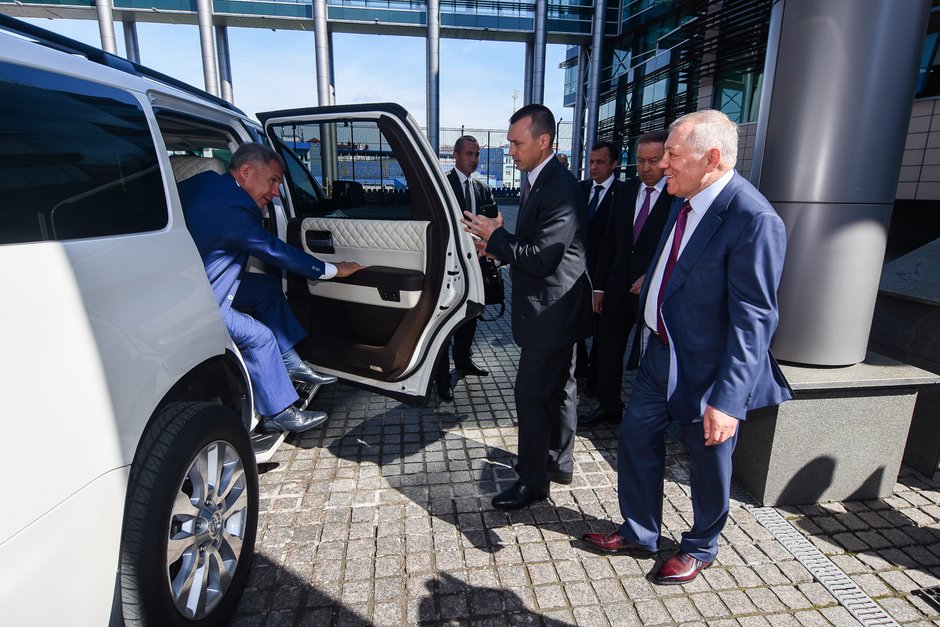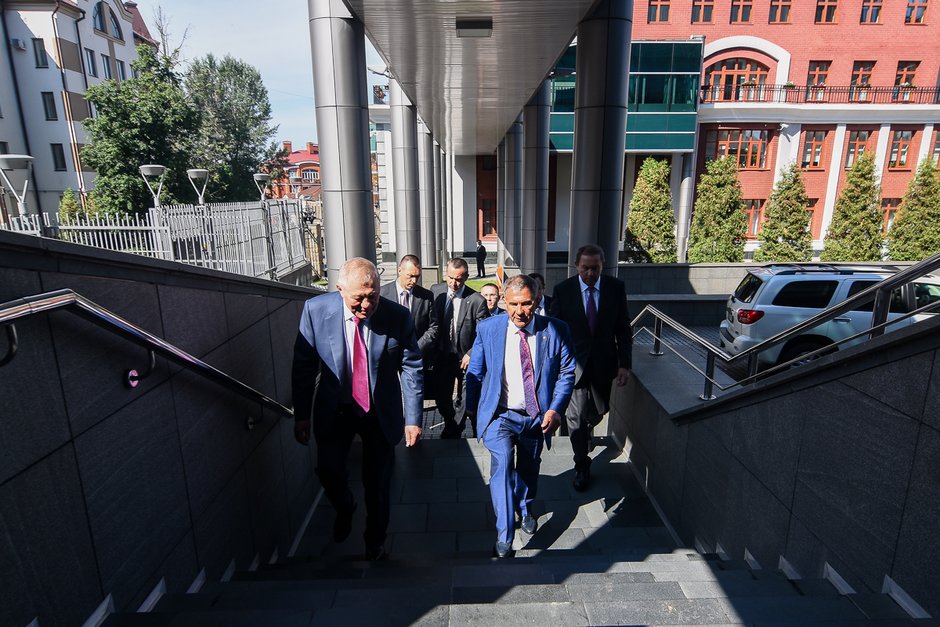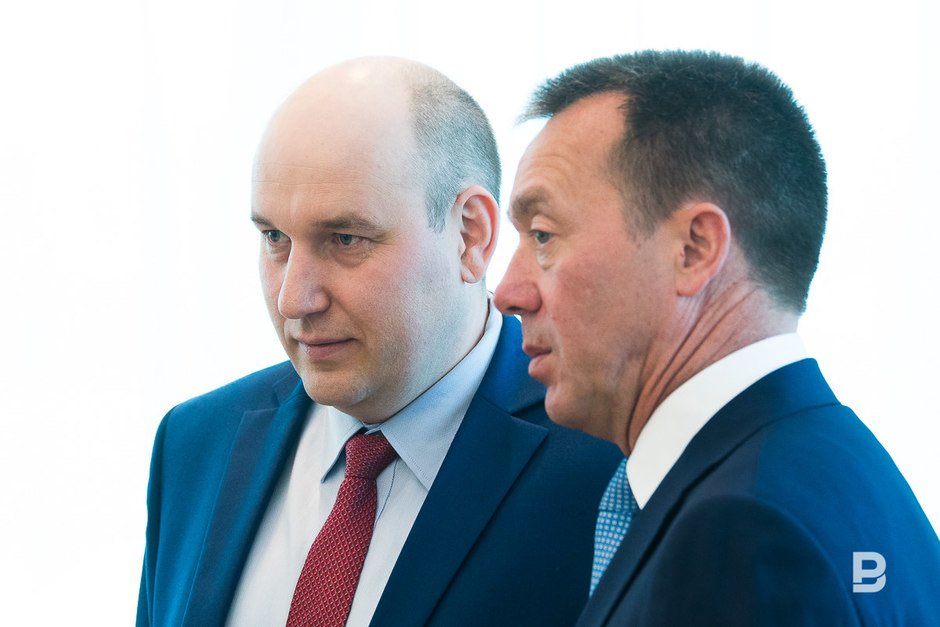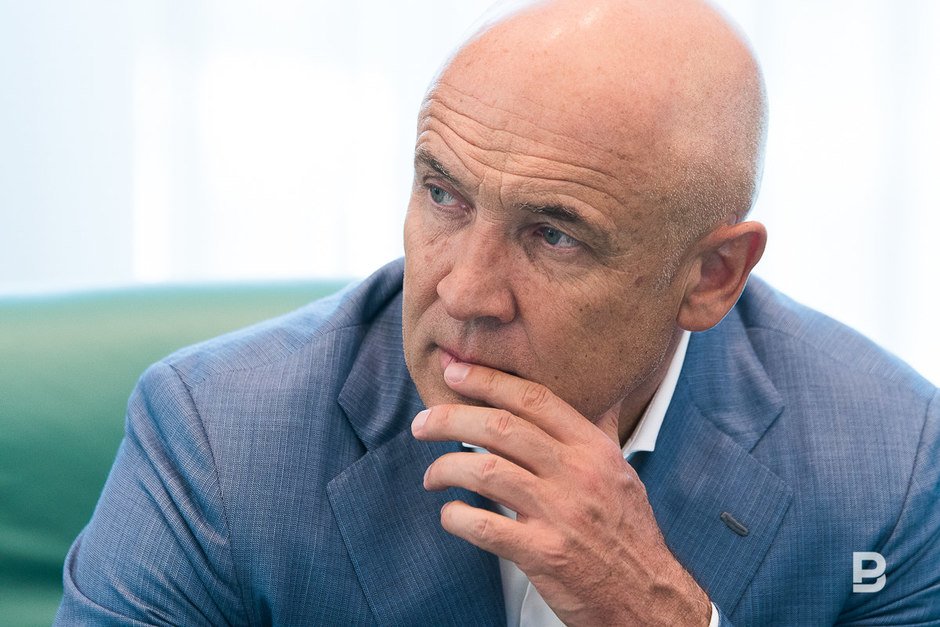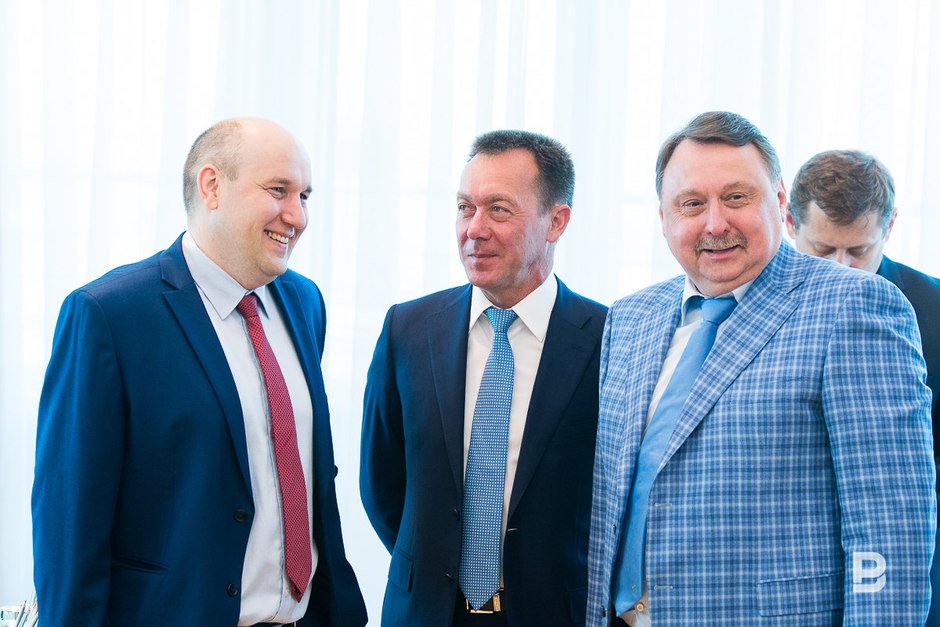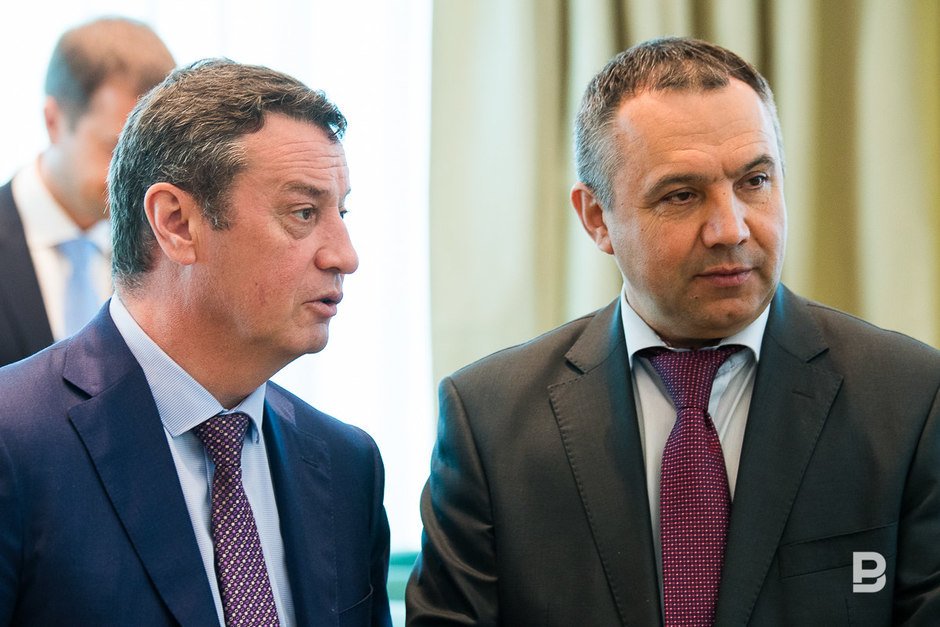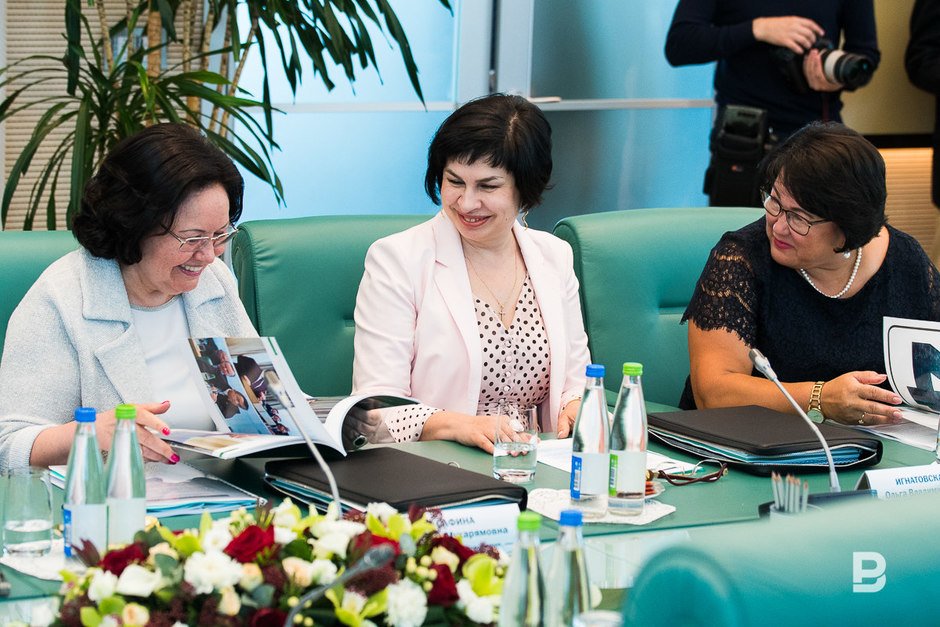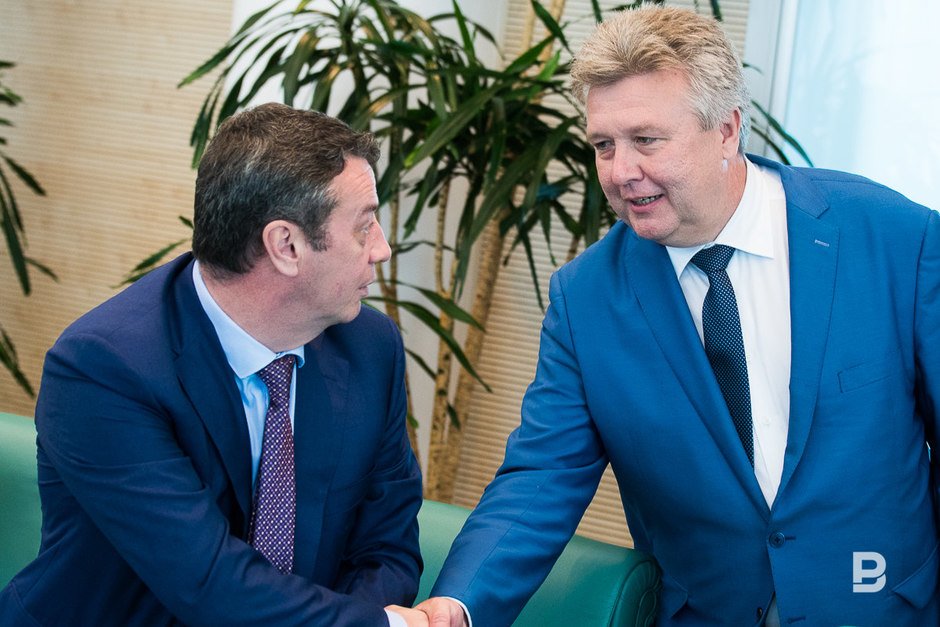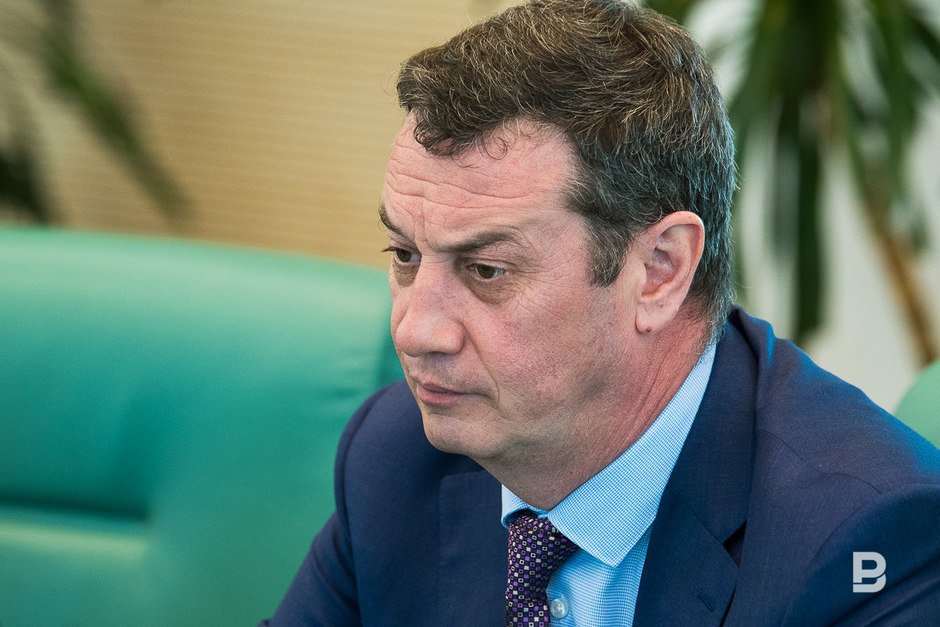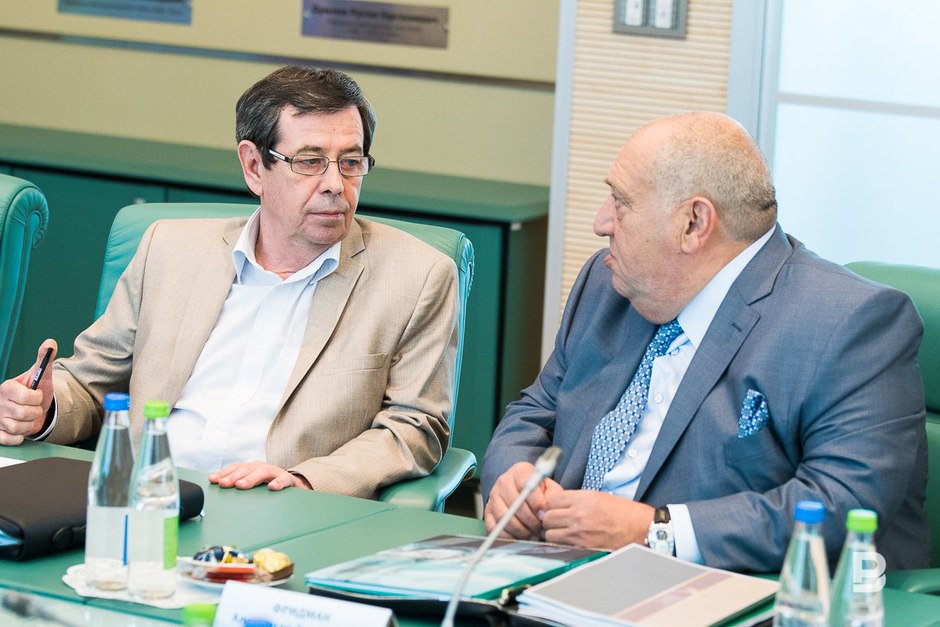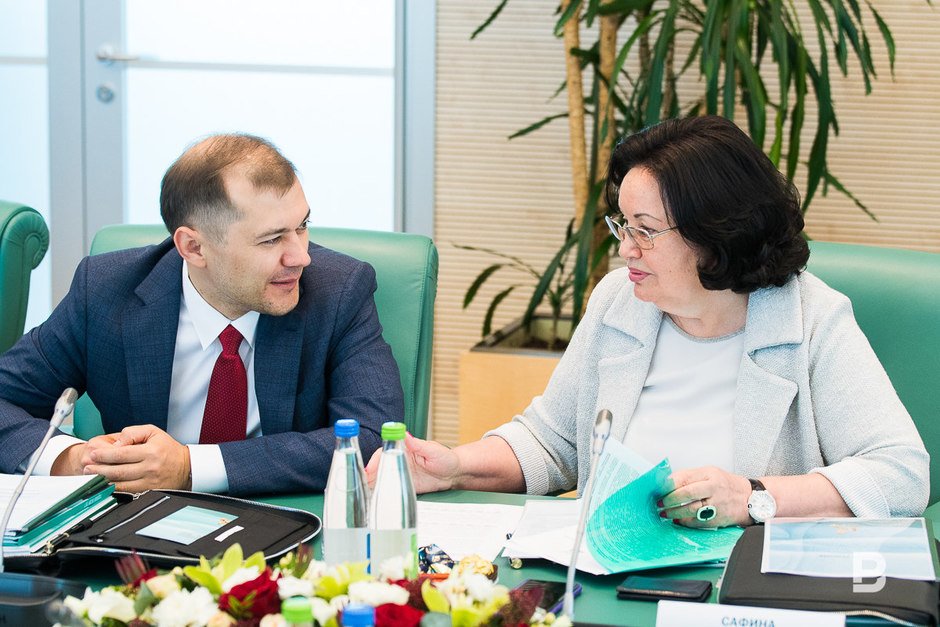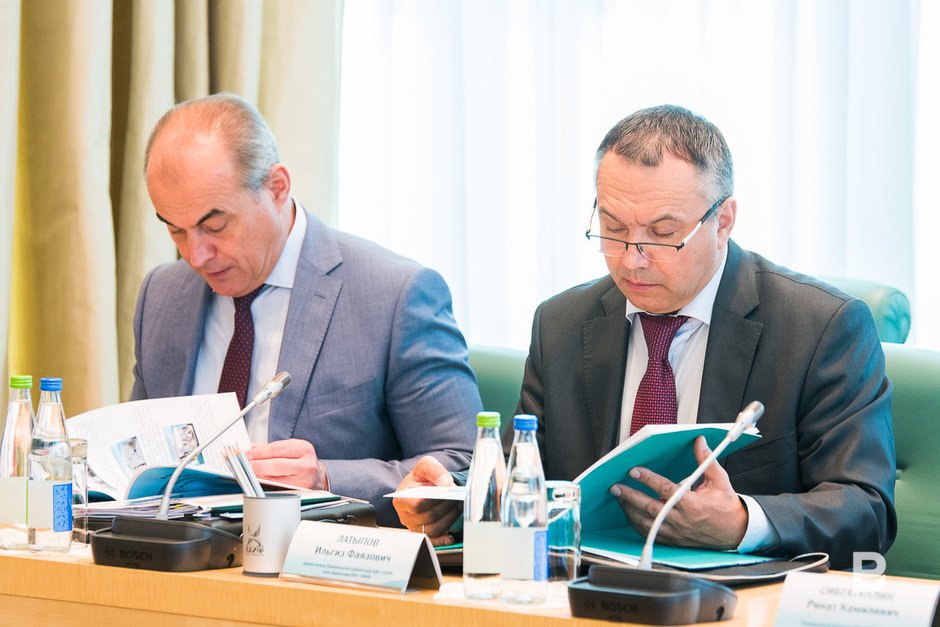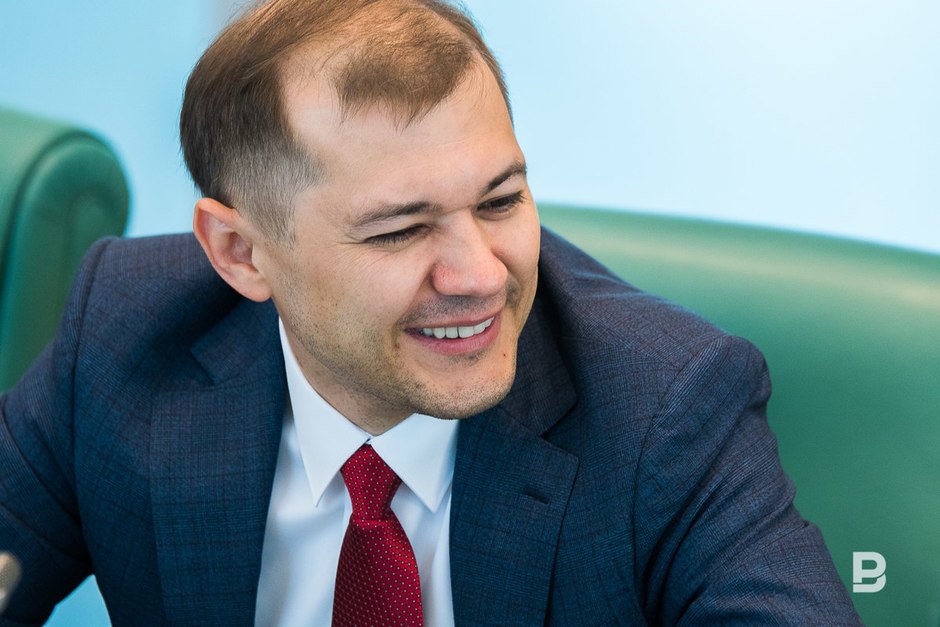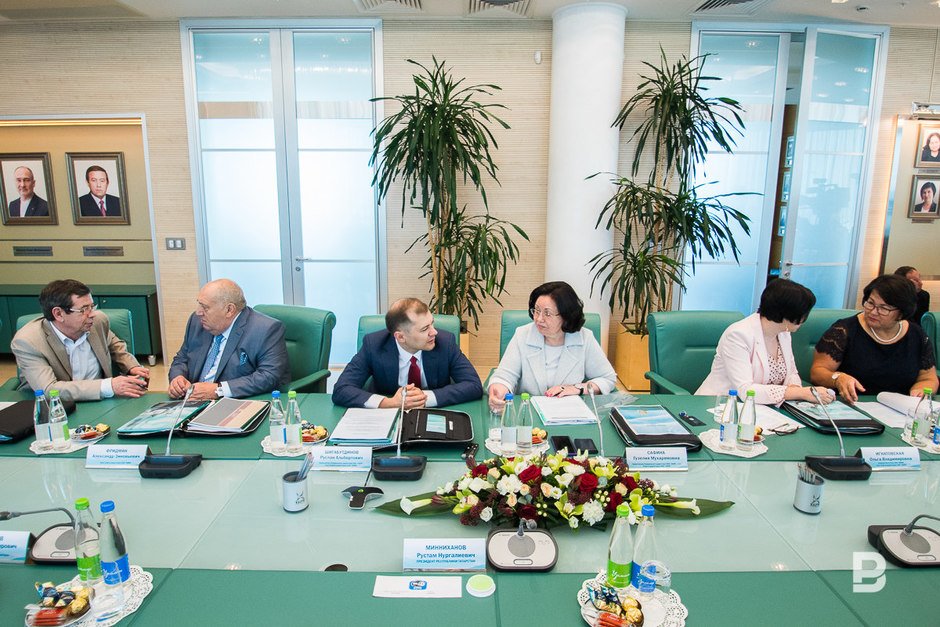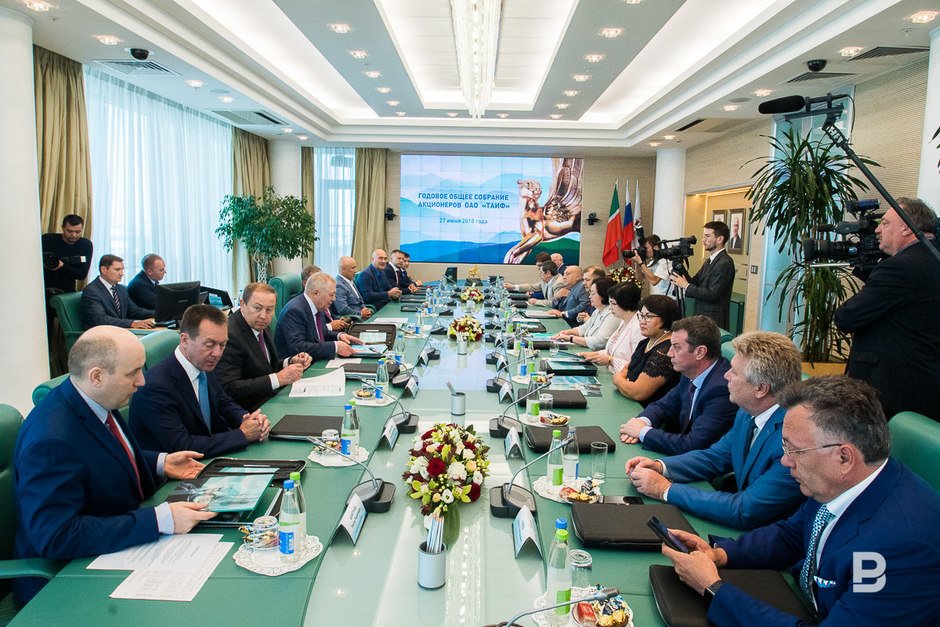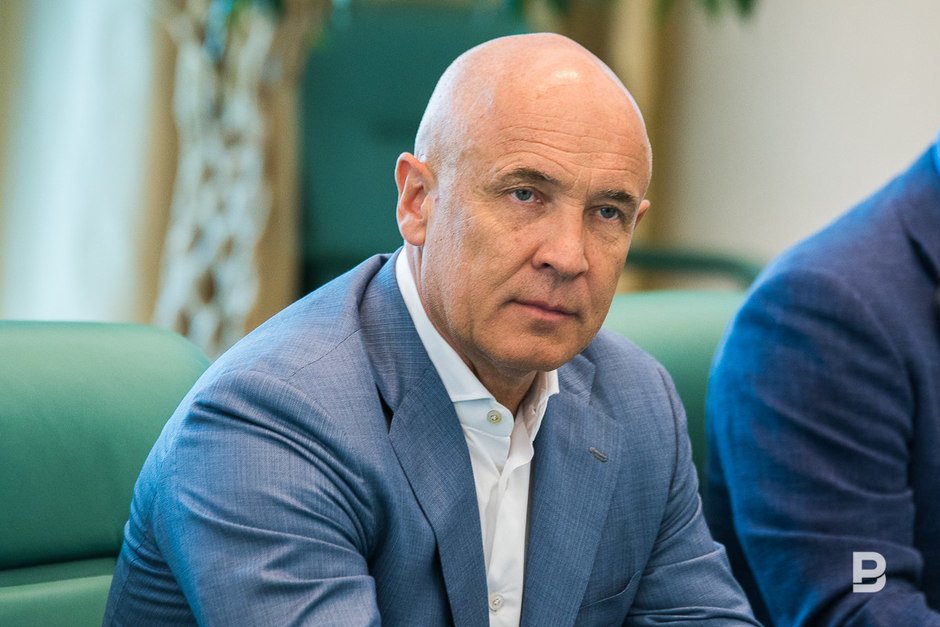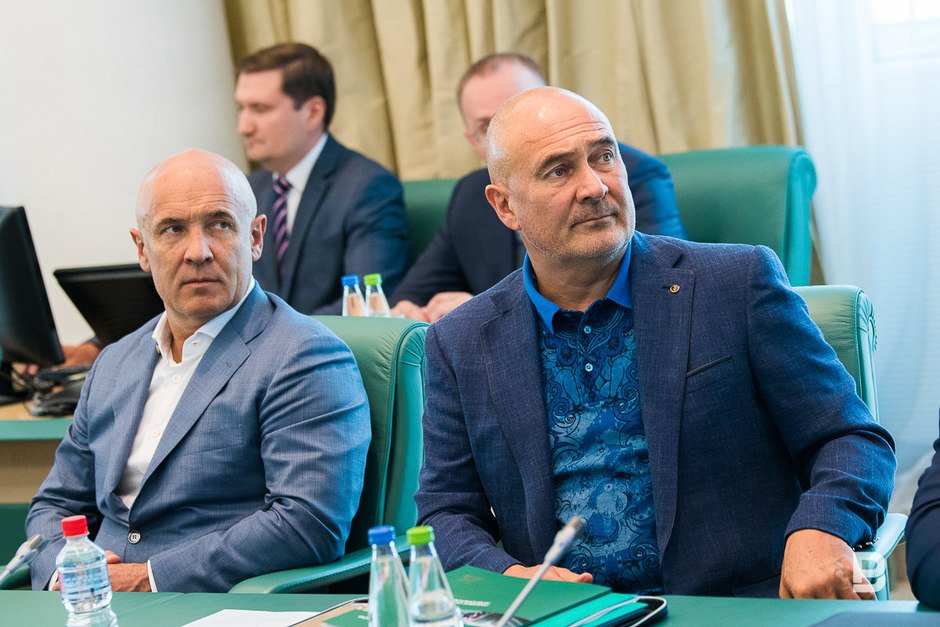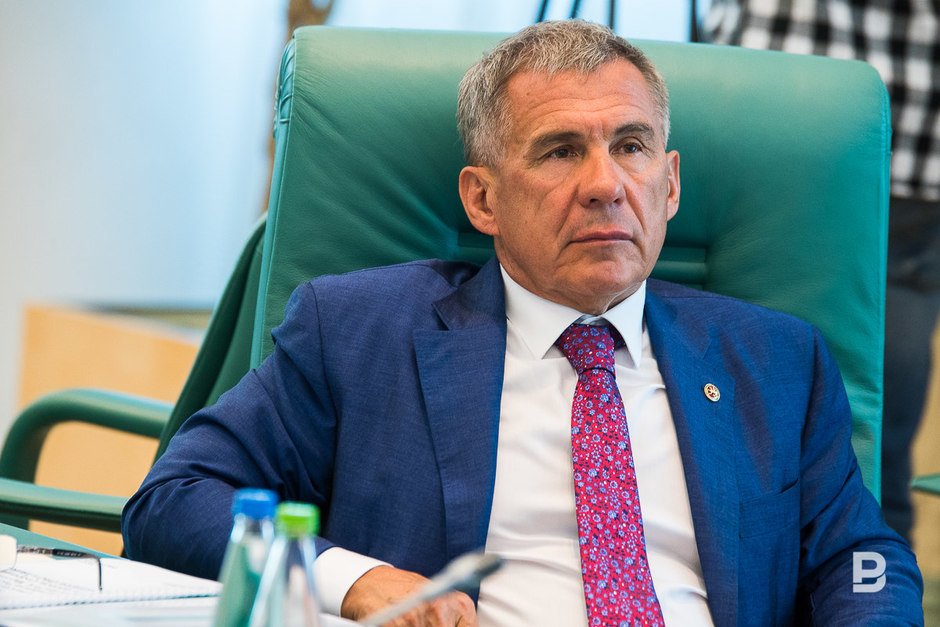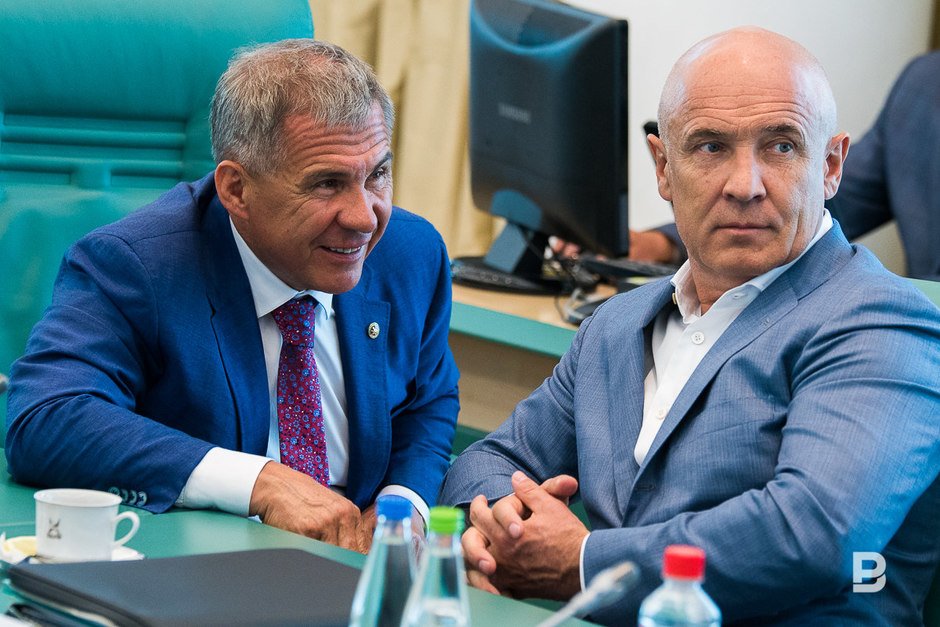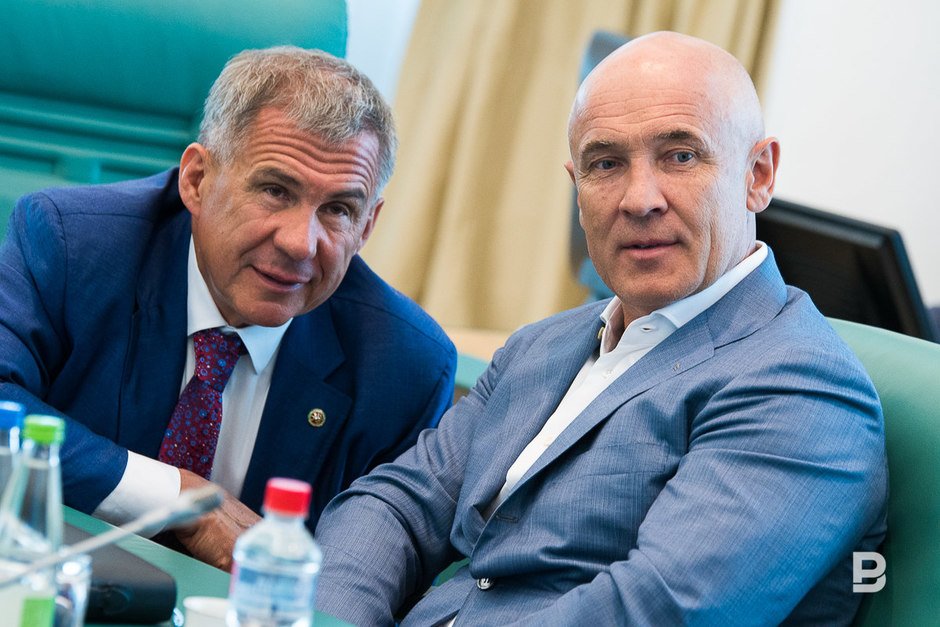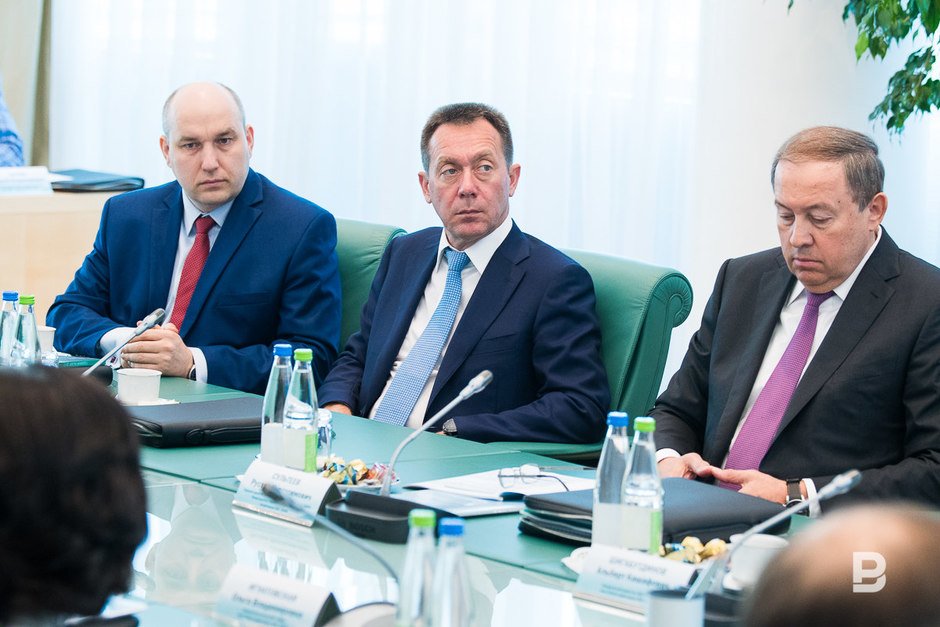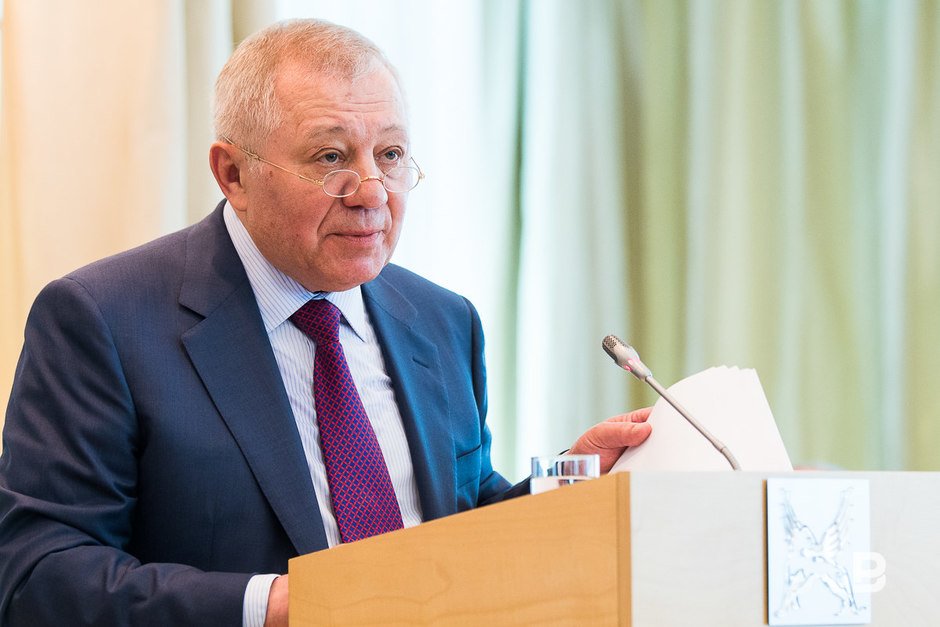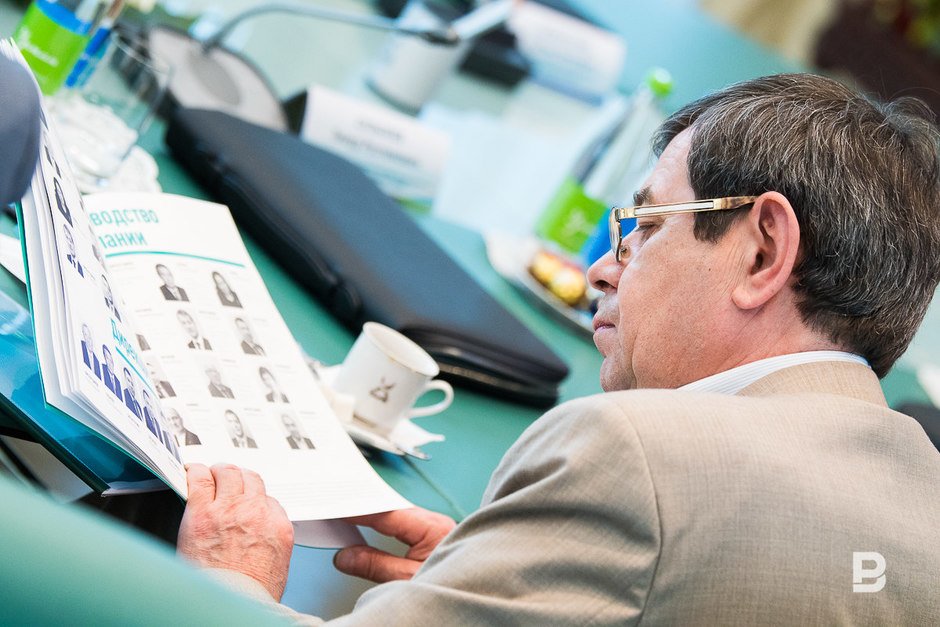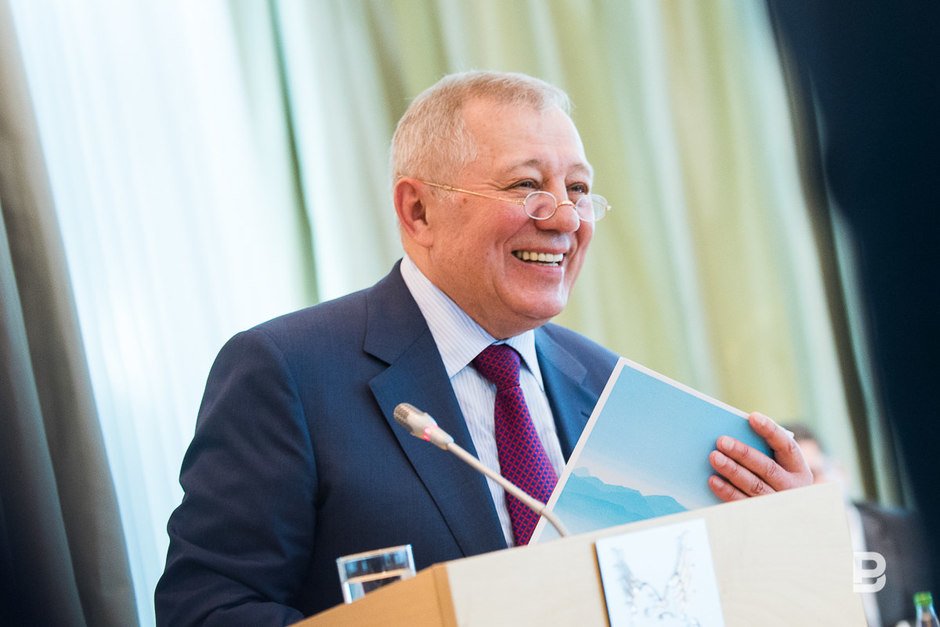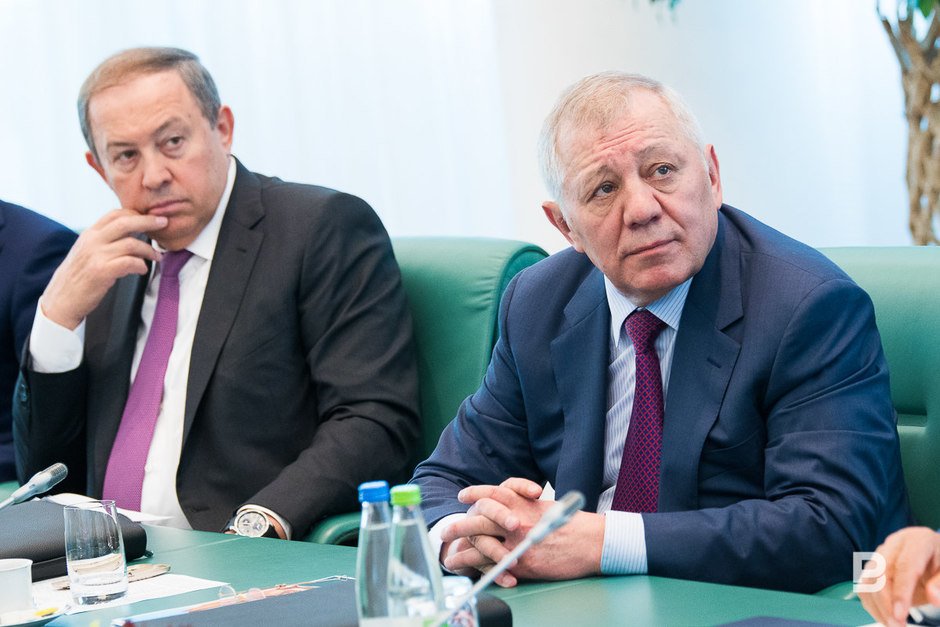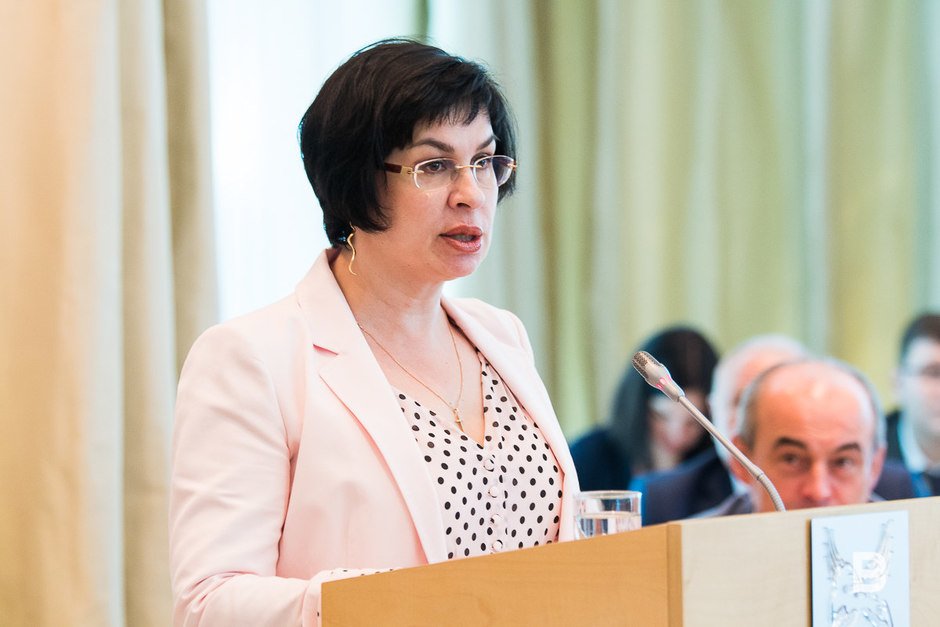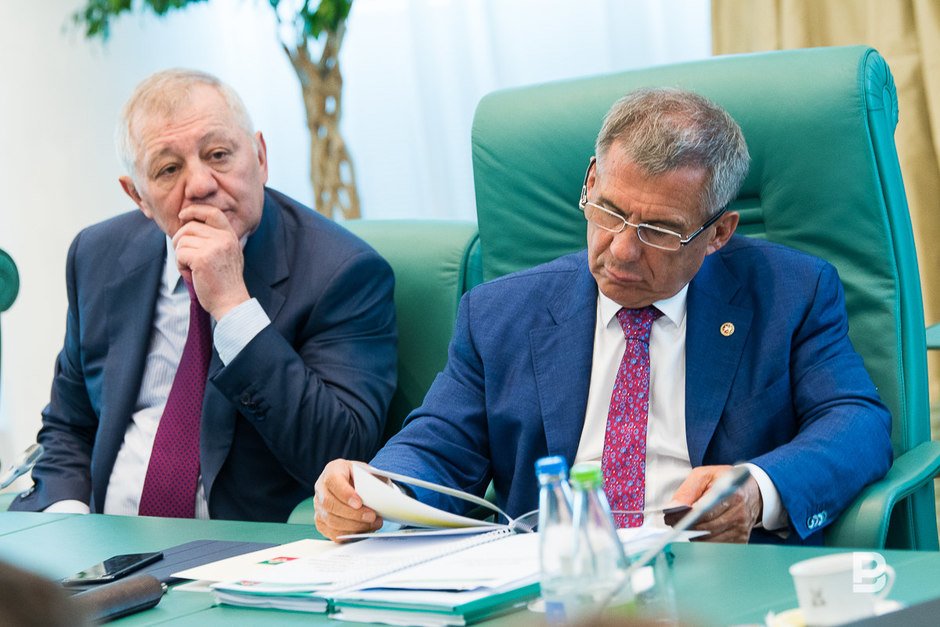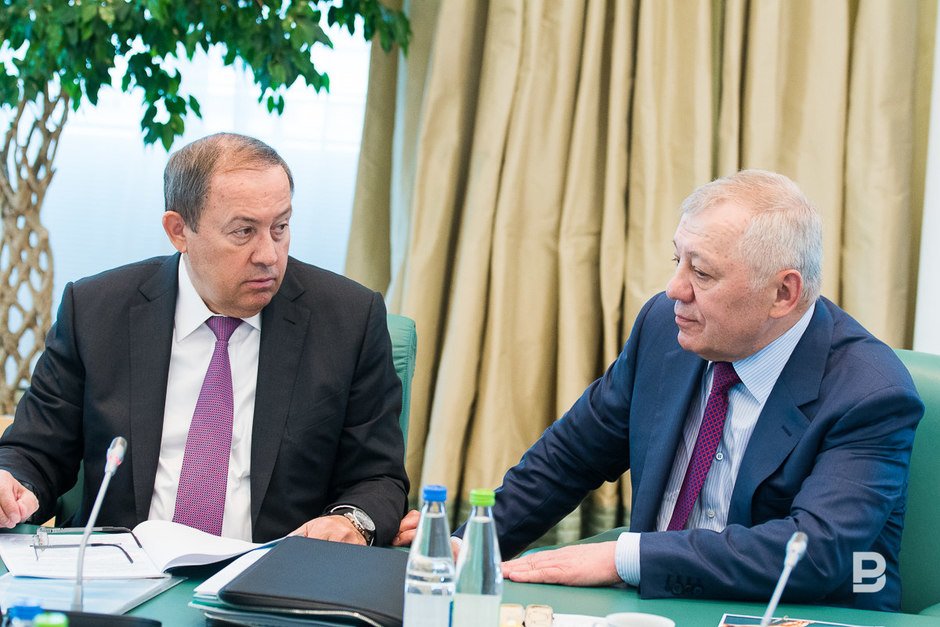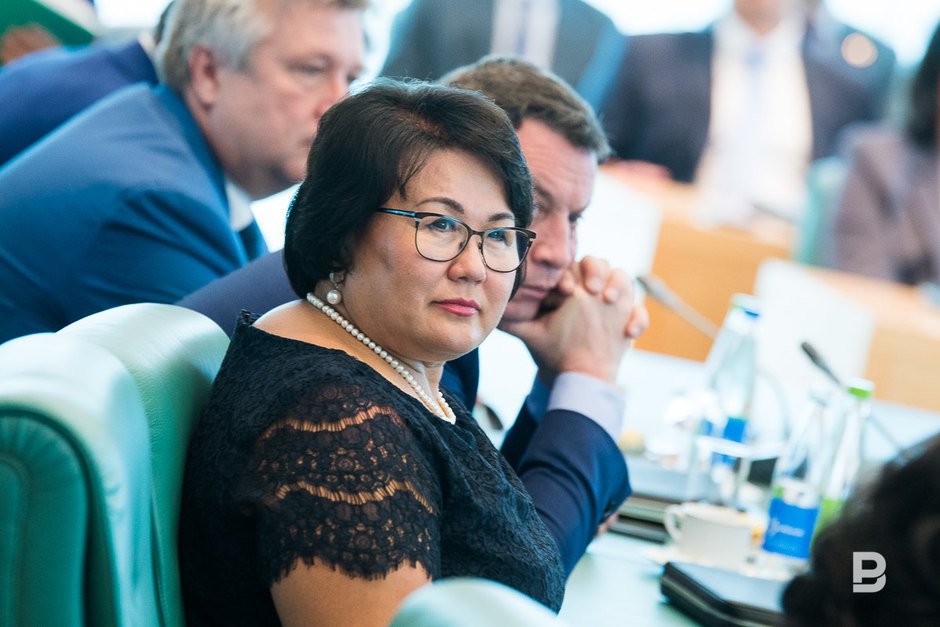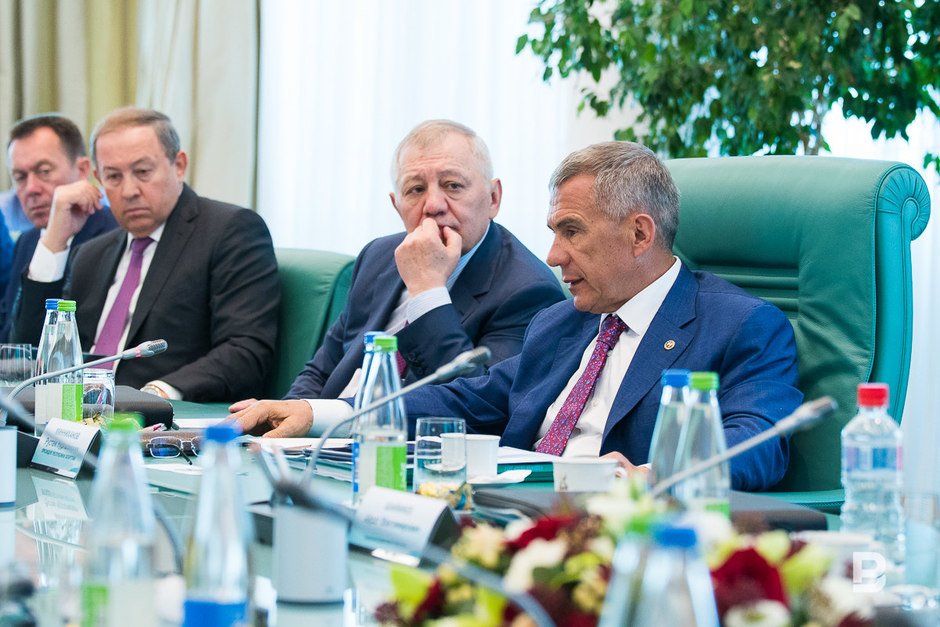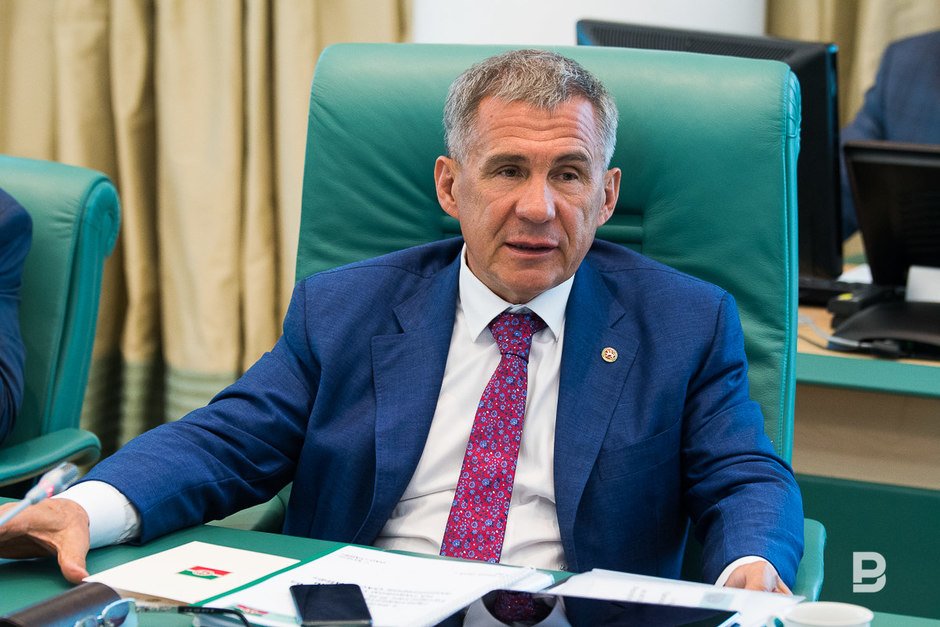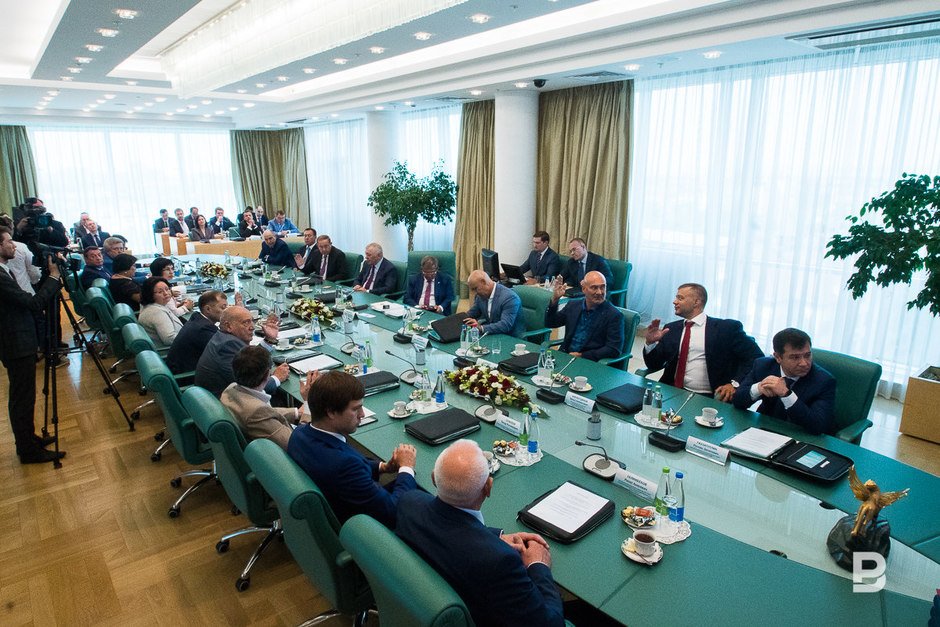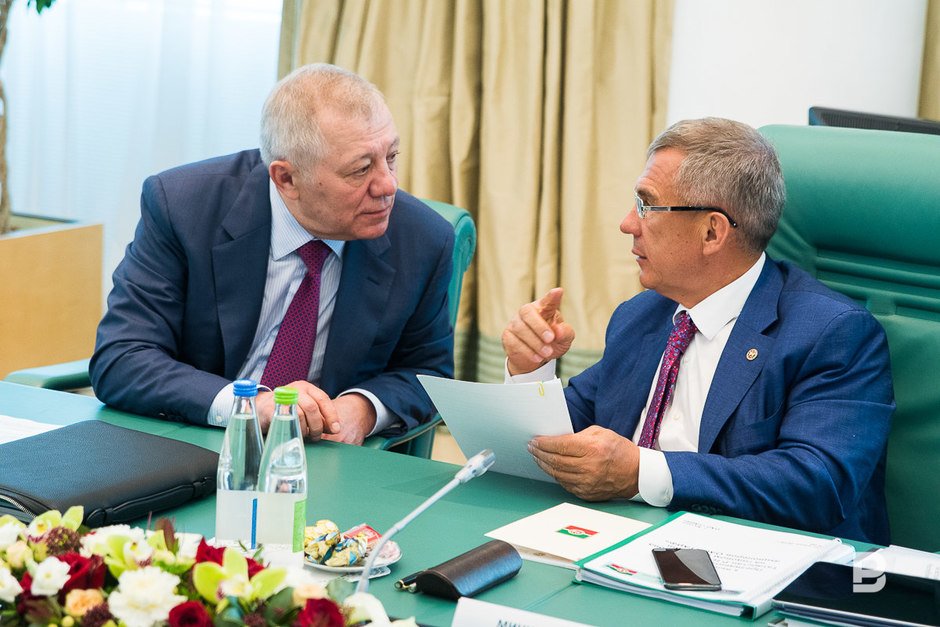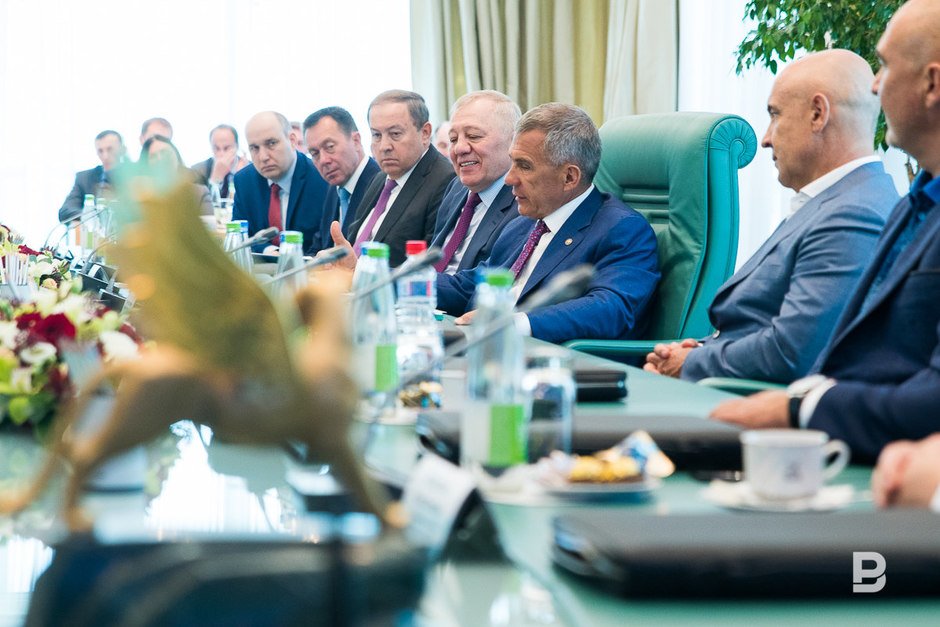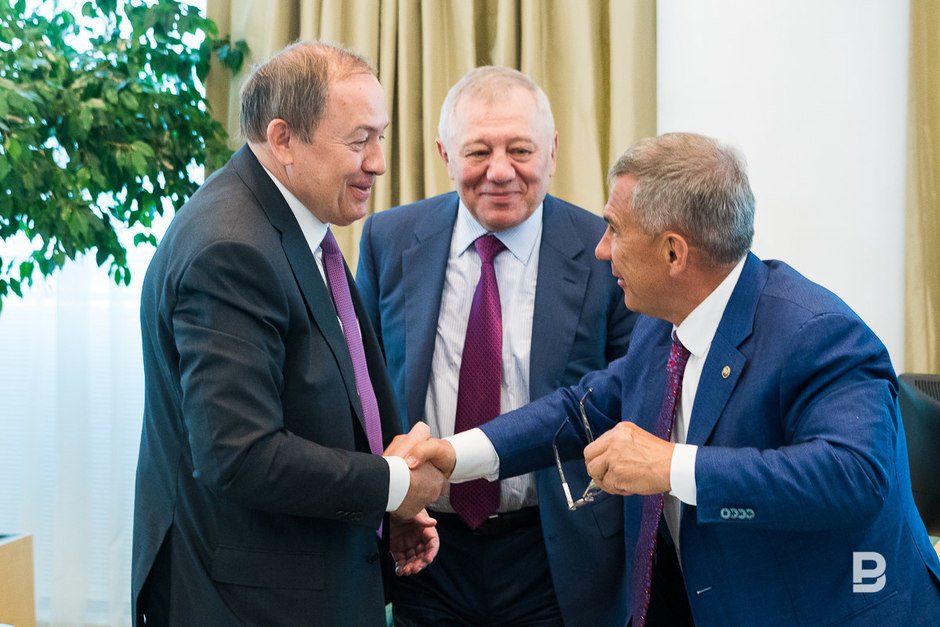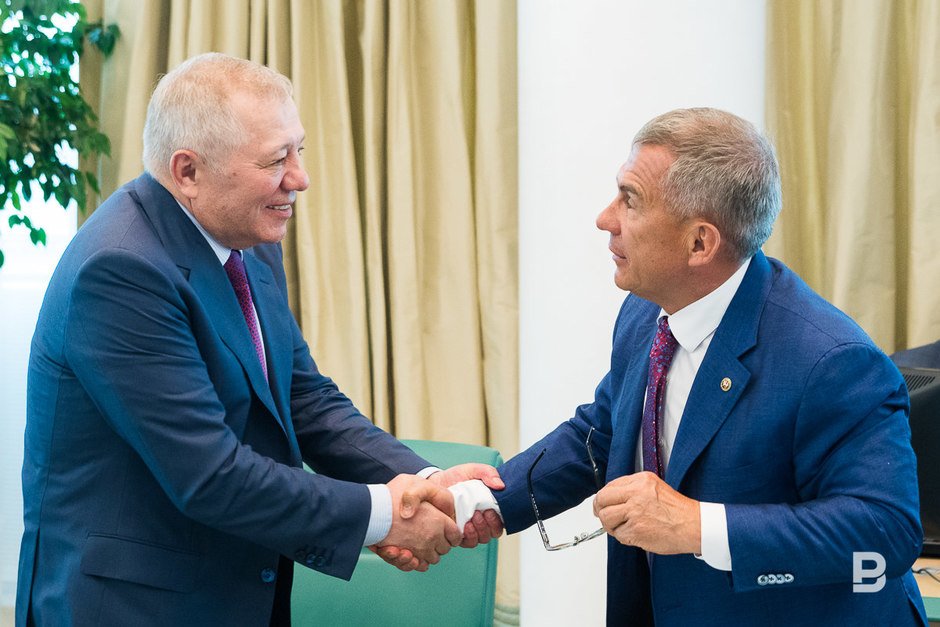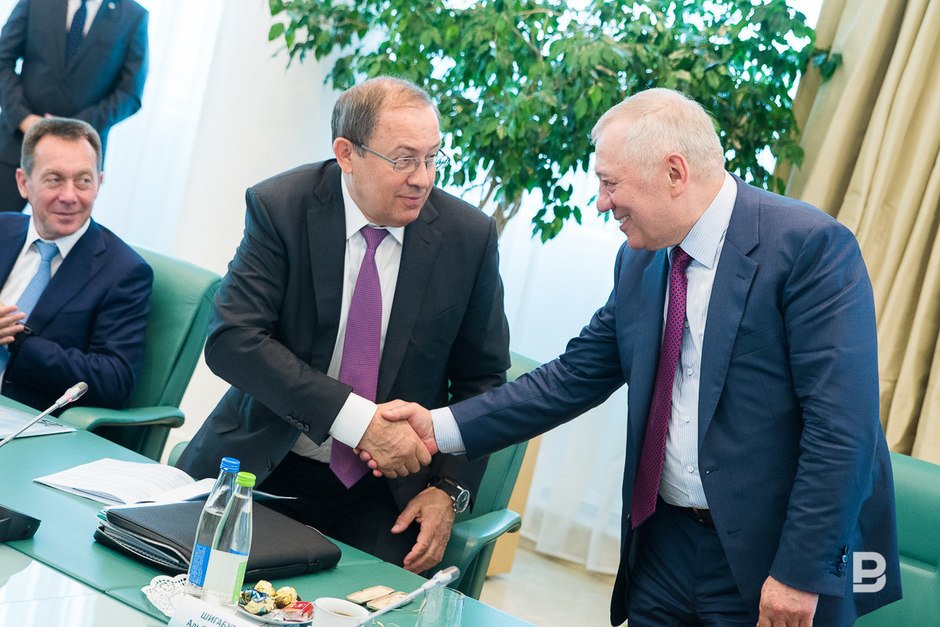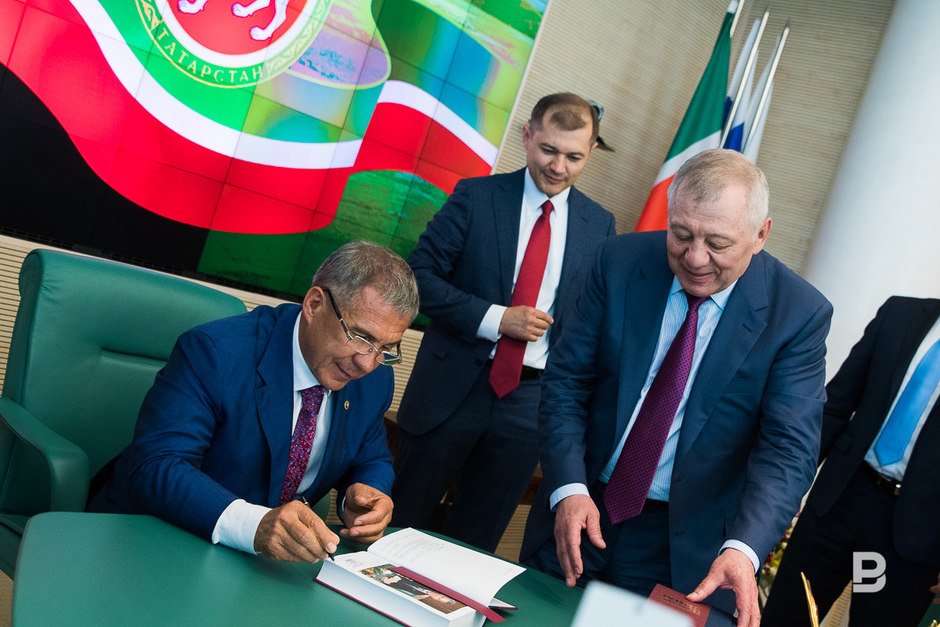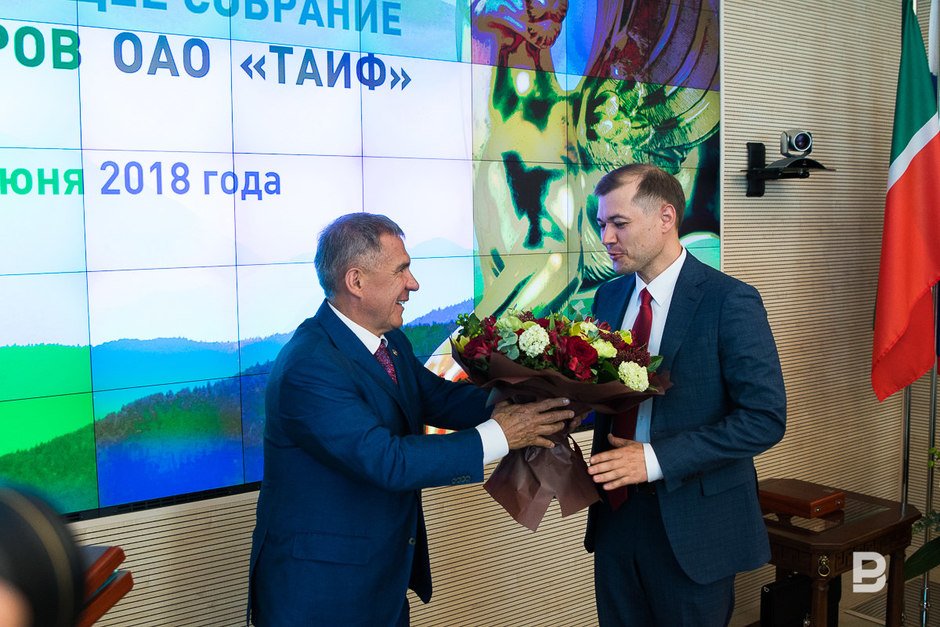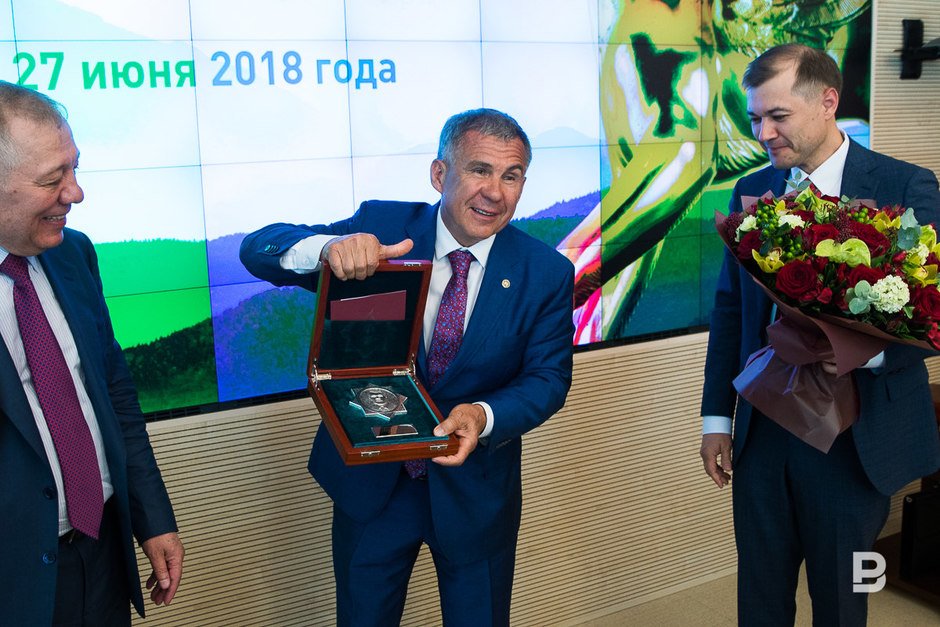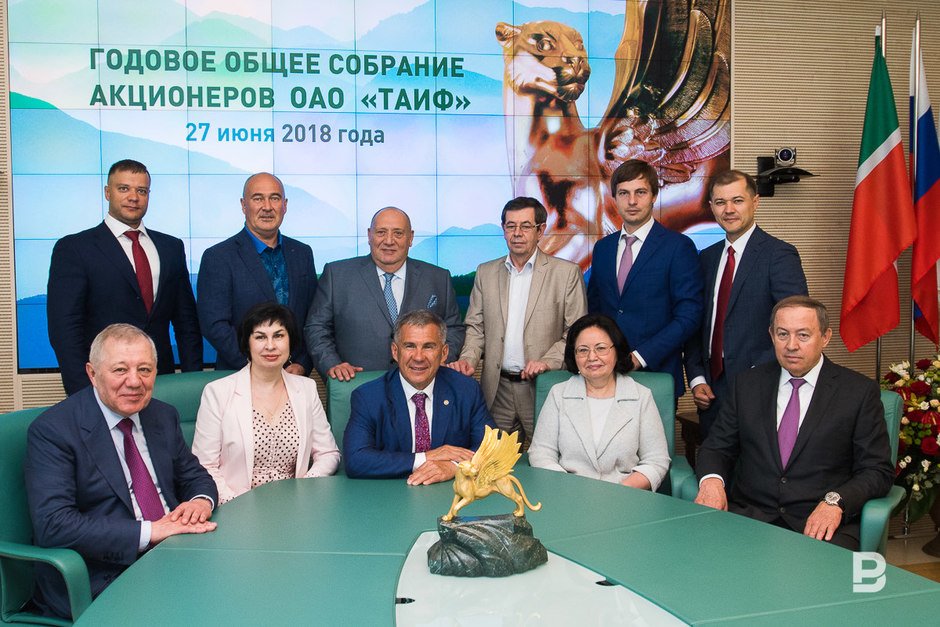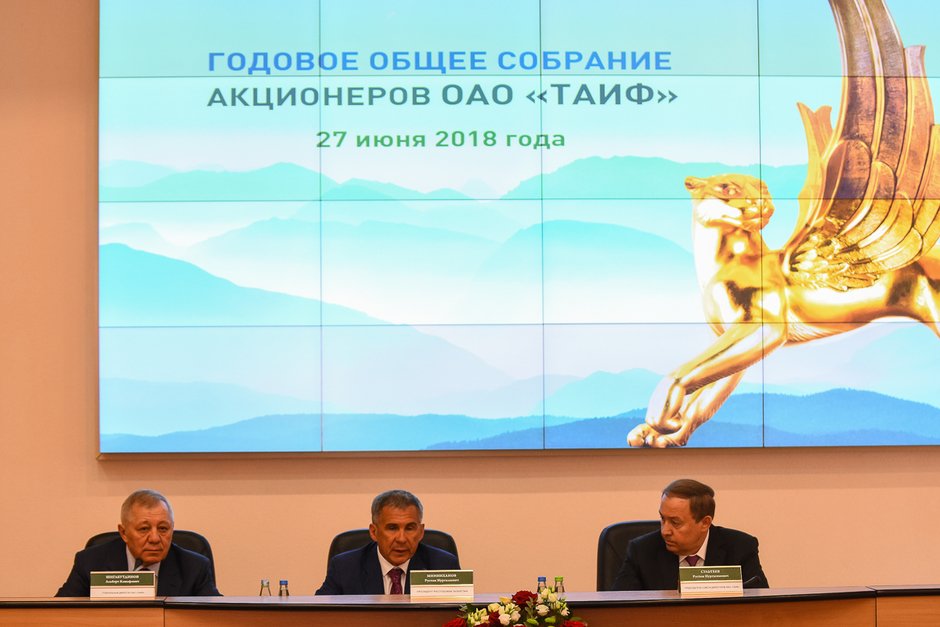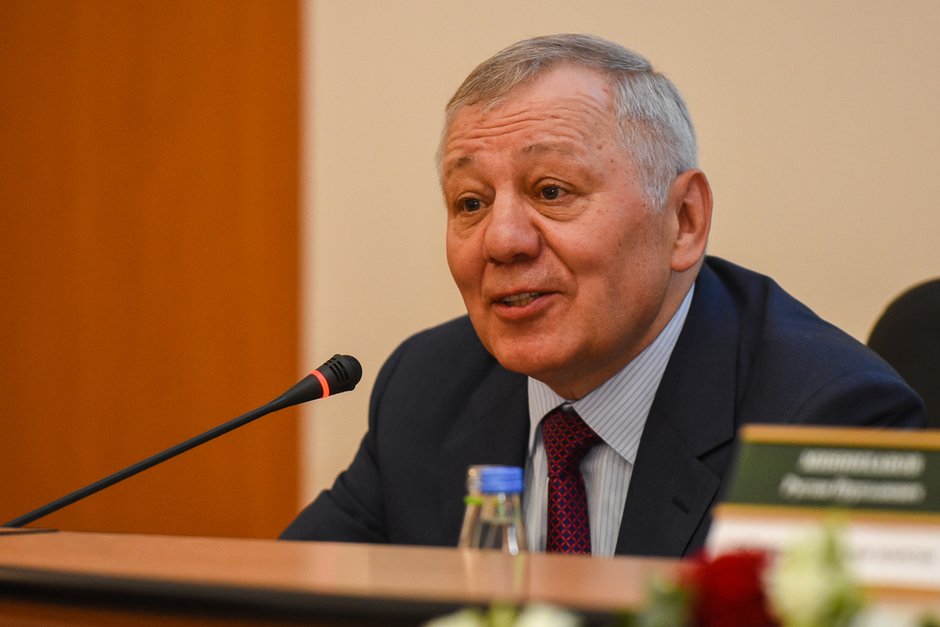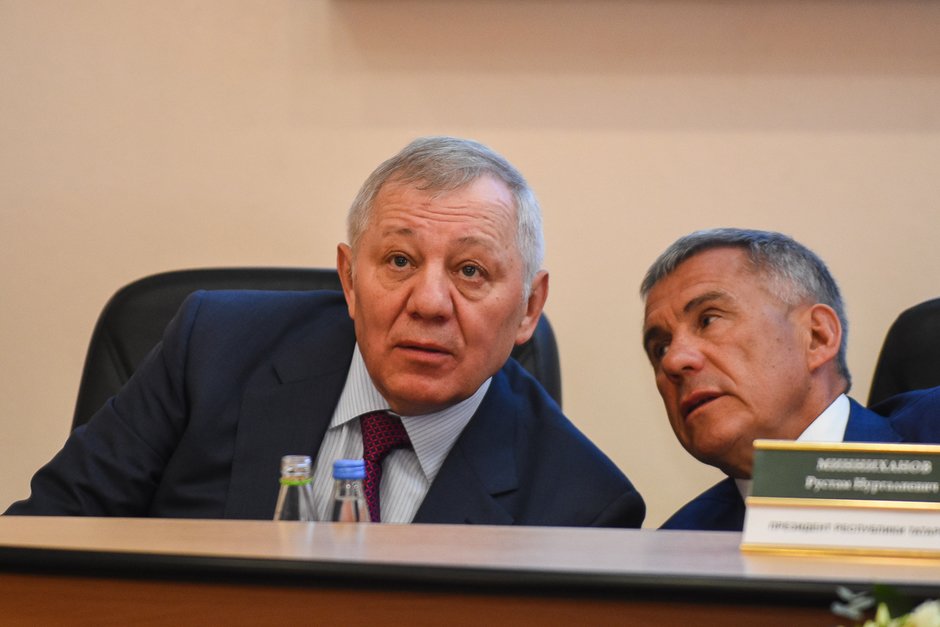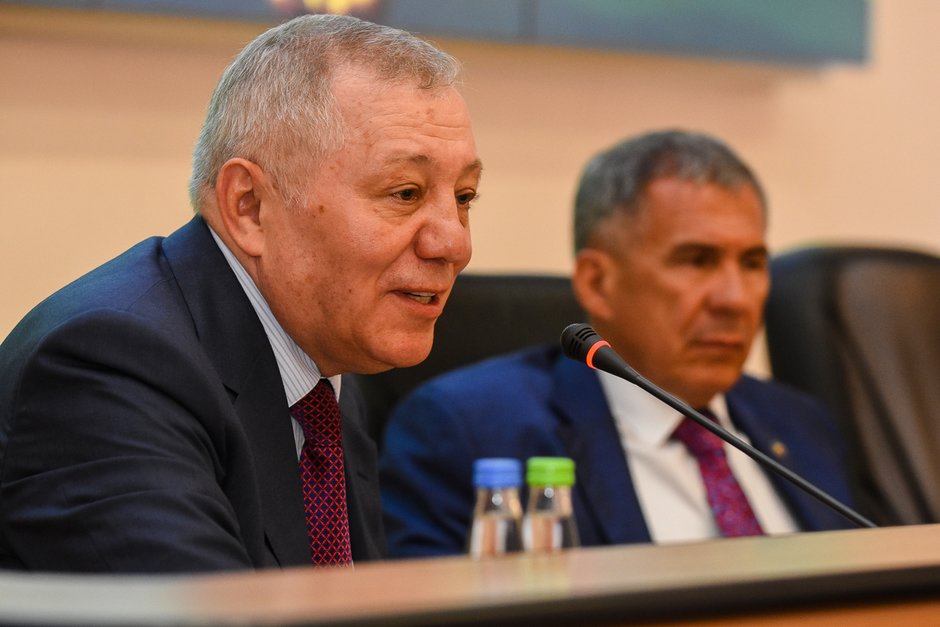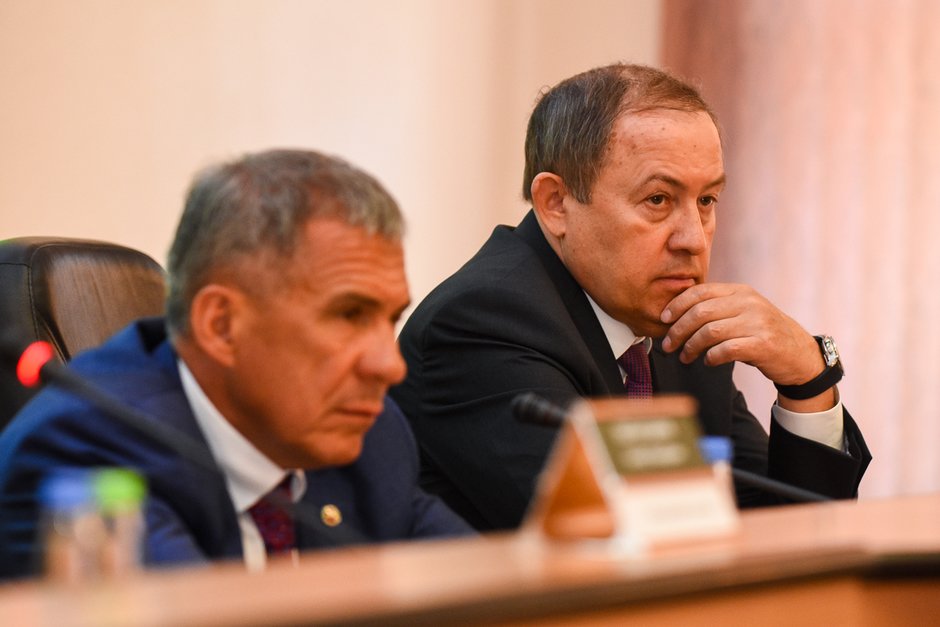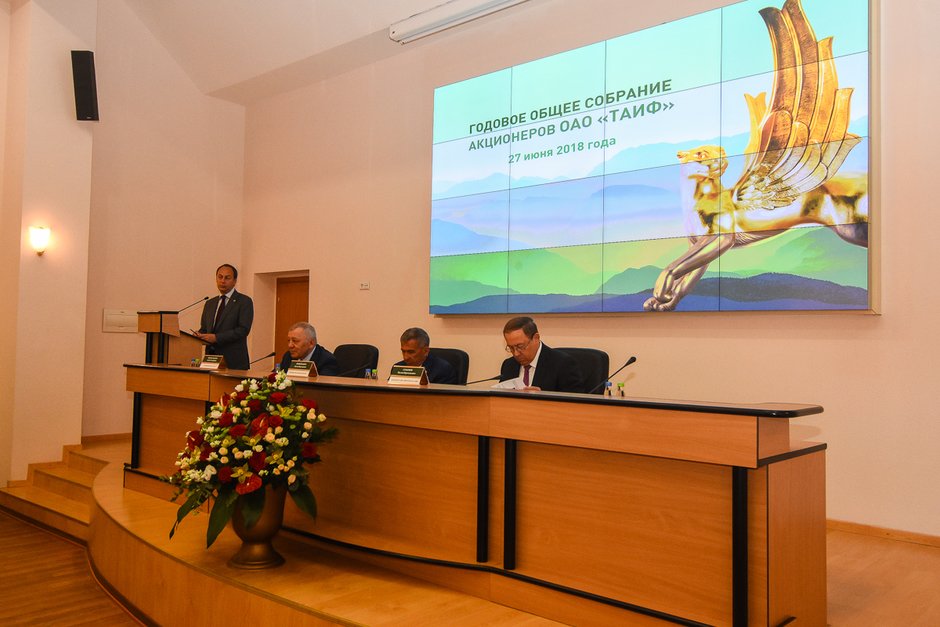Rustam Minnikhanov: ''TAIF Group is a petrochemical centre of Russia''
Net revenue of TAIF Group amounted to 593,4 billion rubles in 2017. The group of companies continued to upgrade its existing production facilities and to build new ones, allocating 73,9 billion rubles for this purpose. Such data were announced at the annual meeting of shareholders of TAIF PSC in the presence of Tatarstan President Rustam Minnikhanov. The participants of the meeting discussed the upcoming completion of the tax maneuver and its impact on the oil refining industry, as well as the draft law on establishment of export duties on light oil products in the amount of up to 90%. Read the details in the report of Realnoe Vremya.
Record-breaking indicators
The results of the activities of TAIF Group and the joint stock company for 2017 were summed up at the annual meeting of shareholders of TAIF PSC. Tatarstan President Rustam Minnikhanov took part in the meeting. Reporting on the results of TAIF Group for 2017, Director General of TAIF PSC Albert Shigabutdinov noted that, despite the fact that the year was not easy, the results of the work of the leading petrochemical enterprises — Nizhnekamskneftekhim PJSC and Kazanorgsintez PJSC, as well as the energy company TGC-16, which are part of TAIF Group, were record-breaking by physical volume of production of commercial products over the entire period of their activities.
In the reporting year, TAIF Group received the net income, including indirect taxes, in the amount of 687,1 billion rubles. The revenue amounted to 593,4 billion rubles, EBITDA — 109 billion rubles. 52,6 billion rubles of tax payments and fees were paid to the budgets of all levels and extra-budgetary funds, including in the budget of the Republic of Tatarstan — about 17,6 billion rubles. The total investment volume in the construction of new production facilities and modernization of existing ones for the reporting year amounted to 73,9 billion rubles.
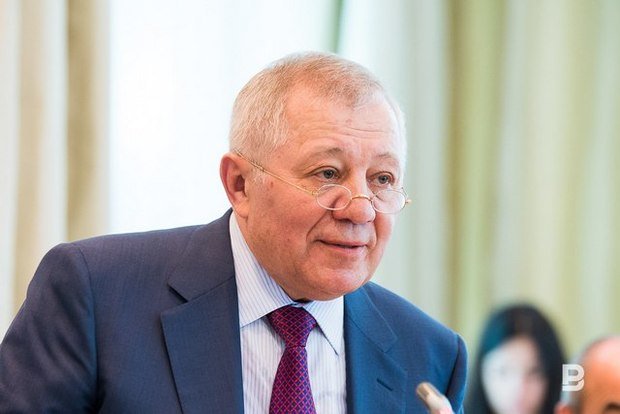
''Constant modernization, construction and commissioning of new facilities make it possible to maintain a leading position in the Russian market of polymer production, including of rubbers, plastics and ethylene. We produce almost 70% of all rubbers in Russia, produce up to 42% of plastics, ethylene production — the main indicator of the petrochemical industry — is 42% of the total Russian production. During the existence of the group, we have increased ethylene production capacity by 1,5 times, at other plants of the Russian Federation the growth was 1,1 times. Production of polymers of the group during this period increased by 6 times, and at other plants of Russia — by 2,8 times. In 1994, 57 grades of low-quality polymers were produced, 30 grades of which have been removed from production, and the remaining 27 grades are produced at modernized plants using new technologies. At the same time, new capacities were built and launched to produce 133 completely new brands. Today, the group produces 160 grades of polymers that meet the highest international quality standards,'' Albert Shigabutdinov told at the meeting.
HRCC will begin to receive main raw material by 2019
The director general of TAIF PSC noted that there have never been simple and easy periods in the development of the group of companies, and the year 2017 was no exception. According to the current tax maneuver in the oil and oil refining sectors of the country, oil prices were once again increased, taking into account an increase in export oil duties by 12% compared to 2016. Also, the prices of dark oil products were reduced due to an increase in their duties up to 100%.
In turn, the world market experienced a much sharper drop in the price of petroleum products than of oil. The conditions of the tax maneuver were determined in 2014 and were calculated for the highest market prices for oil and oil products at the time at the rate of the dollar of 37 rubles. Thus, the cost of raw materials grew much faster than the price of petroleum products. At the same time, excise duties on diesel fuel increased by more than 2,000 rubles per tonne, and motor gasoline — by 3,700 rubles per tonne.
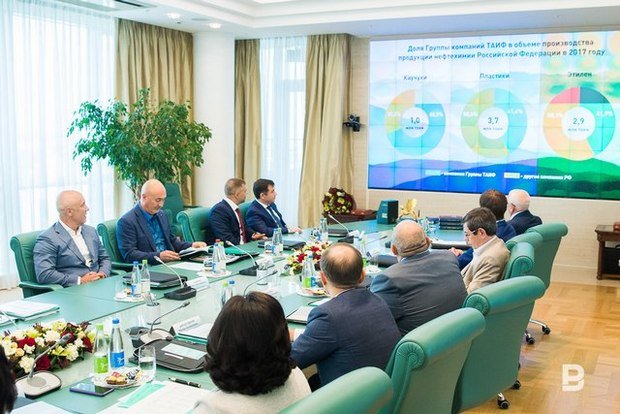
''In order to minimize the consequences of the large tax maneuver, as well as to maximize the extraction of high-quality light oil products from heavy sulfur oil, TAIF-NK is implementing a strategic investment project for the construction of the Heavy Residue Conversion Complex, innovative technologies of which should allow the group to reach a completely new level of quality for the processing of oil raw materials in the world,'' Albert Shigabutdinov told the shareholders.
To date, all construction and installation works have been completed at the HRCC, the main and auxiliary production facilities have been introduced in the mode of comprehensive testing, technological regimes have been debugged, new products have been received. It is planned that by 2019 the HRCC will begin to receive the main raw material.
Changes in tax legislation
During the meeting of the shareholders, they considered a draft law, providing for possible establishment of an export duty on light oil products in the amount of up to 90% from 1 August 2018. The relevant amendments were presented at the meeting of the State Duma Budget Committee in mid-June. Such changes may have a negative impact on the oil refining industry of the Russian Federation, reducing the interest of the refinery in increasing the level of processing of oil and gas raw materials and obtaining the maximum amount of light oil products.
Oil refineries are also expecting changes in tax legislation from the new year, associated with the completion of the tax maneuver. While the parameters of the completion of the tax maneuver are not finally defined and the draft bill is being under consideration. It is only known that the completion of the procedure will lead to a gradual complete abolition of export duties on oil raw materials by 2024.
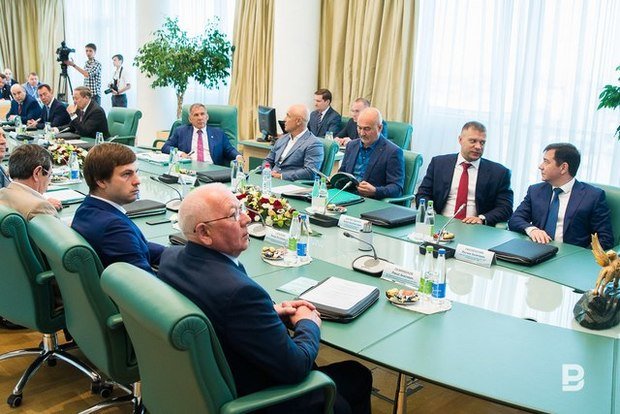
''These changes will increase the price of oil and gas condensate. The state support measure proposed by the Russian Ministry of Finance in the form of a reverse excise tax on oil will not fully compensate for the group's additional costs. At the same time, the expected changes do not take into account the constantly deteriorating quality of the received oil,'' Albert Shigabutdinov said.
TAIF Group has prepared and submitted to the president of the Republic a proposal to adjust the amount of the introduced reverse excise tax on oil by a factor that takes into account its low quality compared to Urals oil, and TAIF has also submitted a proposal to introduce an export duty of up to 90% only on motor gasoline in the law on customs tariff.
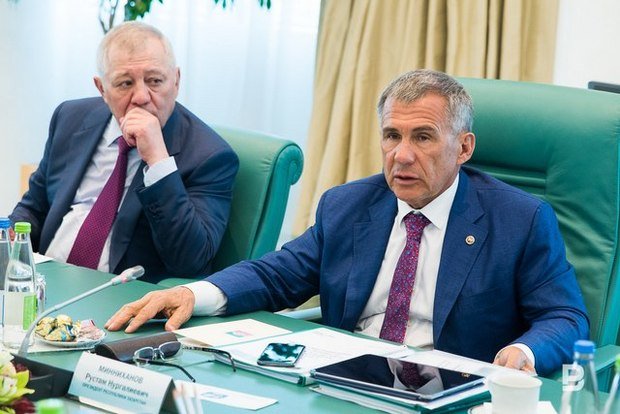
Planned revenue in 2018 — at the level of 638 billion rubles
Having listened to a detailed analysis of the activities of TAIF Group, Rustam Minnikhanov noted that the enterprises of TAIF Group represent one of the largest petrochemical centres of the country. ''Today, the group – it is more than 40,000 employees, 20% of industrial production produced by Tatarstan, 12% of investments of our republic. TAIF is the largest taxpayer,'' Rustam Minnikhanov said.
Later, at a press conference after the annual meeting of the shareholders, answering a question from the correspondent of Realnoe Vremya about the results of TAIF Group, Rustam Minnikhanov noted that the group's success is represented by large-scale projects: deep oil refining, new ethylene complex, serious modernization of power facilities, which indicates a great prospect for the company's development.
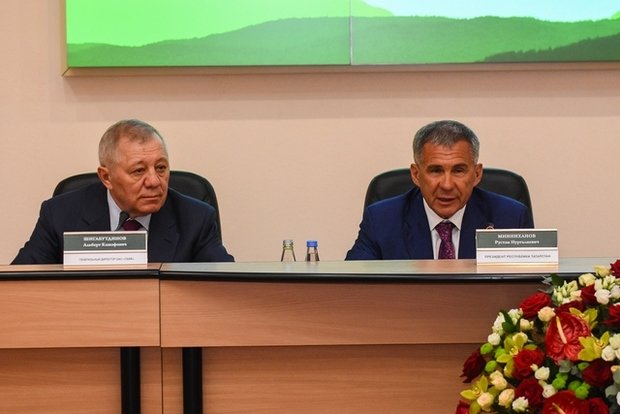
''In general, TAIF is a team of professionals, I thanked the management, shareholders for the work they do, for their contribution to our republic. We believe that TAIF Group is one of the petrochemical centres of Russia,'' the Tatarstan president added.
The head of Tatarstan also commented on changes in tax legislation. ''I understand that they should change, but they should not worsen the state of the enterprises. Businesses need to develop and invest. If they do not have a margin — they will not be able to invest, create new facilities and jobs. So, we with the management of TAIF need to carry out very serious work in parts of the future prospects. It should be understood that every major project should be considered for 15-20 years: how the tax legislation will be changing, supply with raw materials, the state of the markets. The financial model should be stable,'' Rustam Minnikhanov said.
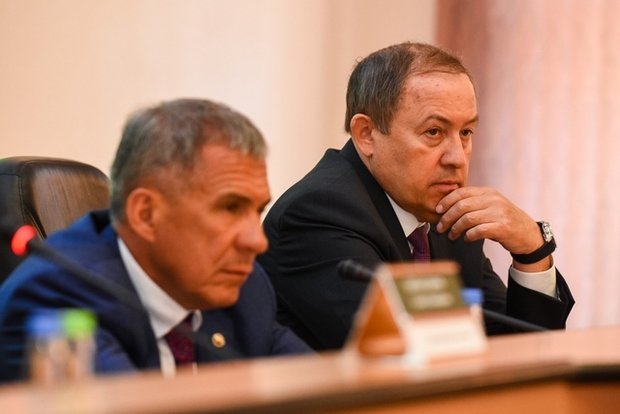
The journalists asked about payment of dividends of TAIF PSC. According to Albert Shigabutdinov, it was decided to direct net profit to the development of the company. Chairman of the Board of Directors of TAIF PSC Rustem Sulteev noted that in 2018 the group plans to receive revenue of 638 billion rubles, EBITDA should reach 113 billion rubles, investments will remain at the level of 2017 and reach 70 billion rubles.
At the press conference, a question was raised about the reorganization of TAIF Group, namely the joining in 2018 of Prominvest PLC, AS PLC, VTNPO Kazan PLC, T2 PLC. Albert Shigabutdinov explained this decision by the desire for financial transparency, which is necessary to attract borrowed funds. ''We have adopted a programme until 2030, which is estimated at about 30 billion dollars. There are special requirements for the organization of financing on such a scale. The management and structure of TAIF are presented in the most transparent state, which would be understandable to financial institutions, so that it would be easier to solve the issues of borrowing for the implementation of this programme — this is the first reason,'' Albert Shigabutdinov said.
The second reason, the director general of TAIF PSC named, the company's intention to enter public offering in 4-5 years, and the third — the need to accelerate management decisions on the scale of TAIF Group.
